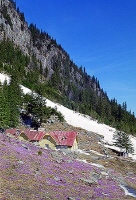 Adevarul made a sensational discovery last week – it found a copy of Romania’s post accession strategy. It made for depressing reading. By 2025, the strategy stated, Romania’s population would be decimated, the economy would be on its knees and the level of poverty would be sky high.
Adevarul made a sensational discovery last week – it found a copy of Romania’s post accession strategy. It made for depressing reading. By 2025, the strategy stated, Romania’s population would be decimated, the economy would be on its knees and the level of poverty would be sky high.
But this is not a strategy, at best it could be called an “analysis”. What the authors did was simply take current social and economic trends and project them into the future, coming up with their gloomy prognosis. It lacks the essentials of a strategy: a goal, a target, something to which the country (or at least the politicians) can strive towards; not to mention the public consultation and publicity that accompany similar strategies in normal countries.
A good strategy must have a clear aim that everyone can agree on. Achieving this aim may be very risky; it may require a huge investment of resources and time. But if everyone agrees on “where we want to go” then all involved are working for the same purpose. This helps to bring teams together and to overcome the biggest challenges.
A good example of a political strategy was Romania’s EU pre-accession strategy. All the main political parties, and over 80% of the population, agreed that Romania should join the EU. This gave politics in Romania over the last 10 years a coherence and direction that is now missing. It also involved a lot of work: in order to qualify for EU membership Romania had to fundamentally change its legal framework.
But now that we are in the EU it is becoming increasingly clear that there is no post-accession strategy. How serious is this? Imagine a ship sailing without a destination, or a ship arriving in port without knowing why it was there. Like a ship lost at sea, Romania is now drifting aimlessly in the international economy, unable to deal with the opportunities or risks ahead. Unless a real strategy is adopted life here will become ever more unpredictable.
But there is one thing that is certain: there is neither the will nor the ability in the political class to come up with a post-acession strategy in the short term. It is obvious that Romania’s leader are happy to keep “muddling through” as before and that they are not aware of the potential value or purpose of a proper strategy.
Therefore, I would like to propose a post-accession strategy for Romania: to become Europe’s first Carbon Zero country by 2035. This would involve a massive investment in industry, infrastructure, forestry, housing and transport in order to cut carbon emmissions to zero. An equally big effort would need to go into explaining to people why it is necesary to save energy and shift to alternative sources of power. The risks of global warming and the fact that oil is fast running (see www.peakoil.net) would need to be explained properly.
A detailed plan of action would have to be developed and all sectors of society would have to get involved. Everything would have to change. To become carbon zero all buildings must be perfectly insulated; heat and power must be produced from alternative sources such a rubbish and sewage; and we would have to change the way we travel and ship goods (more trains and electric cars). The technology for these changes now exists.
Britain’s Liberal Democratic party has adopted a “carbon zero” strategy which involves a massive shift to alternative energy sources and rail travel – by 2050. According to Liberal leader Menzies Campbell “With these policies the Liberal Democrats have become the first major British party to map out the route to a carbon neutral Britain.
Under our proposals, the United Kingdom would set the green standard for others to reach.”
Whatever country moves fastest from our current oil-based economies will be the economic winner – as they will have the expertise and technology to help the other countries adapt before it is too late. The Danish government invested heavily in wind power when it was unfashionable, and now Denmark is the leading producer of wind turbines.
Romania has the advantage of having both ingenuity and cheap labour in abundance, both of which are required to make alternative sources of energy a reality. There are also significant hydro, solar and timber resources here. If only there was more public awareness and some political will.
Hi, my name is disman-kl, i like your site and i ll be back 😉